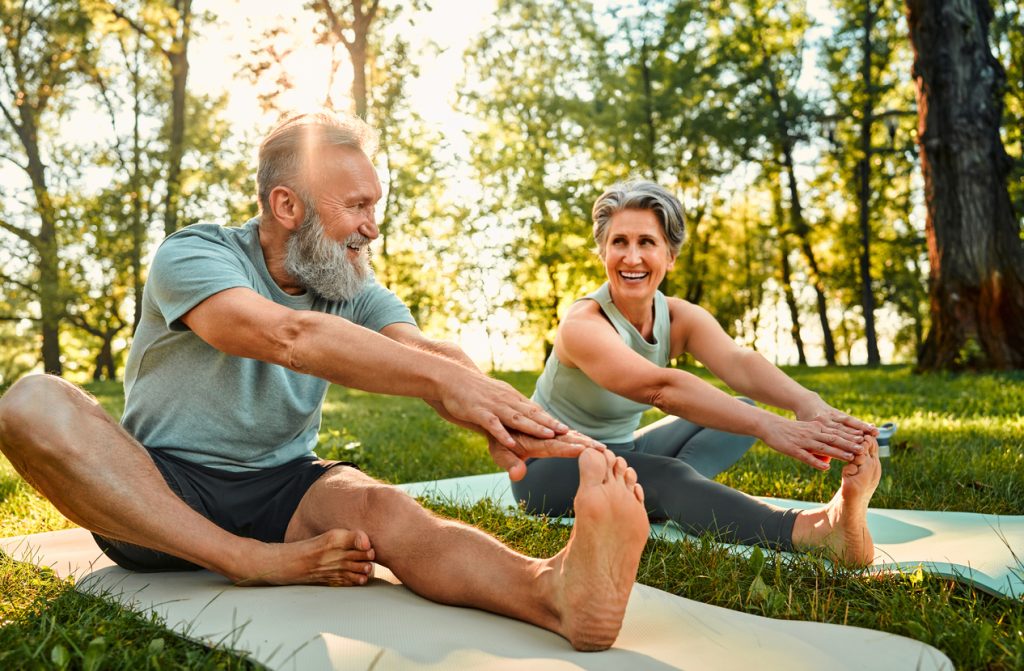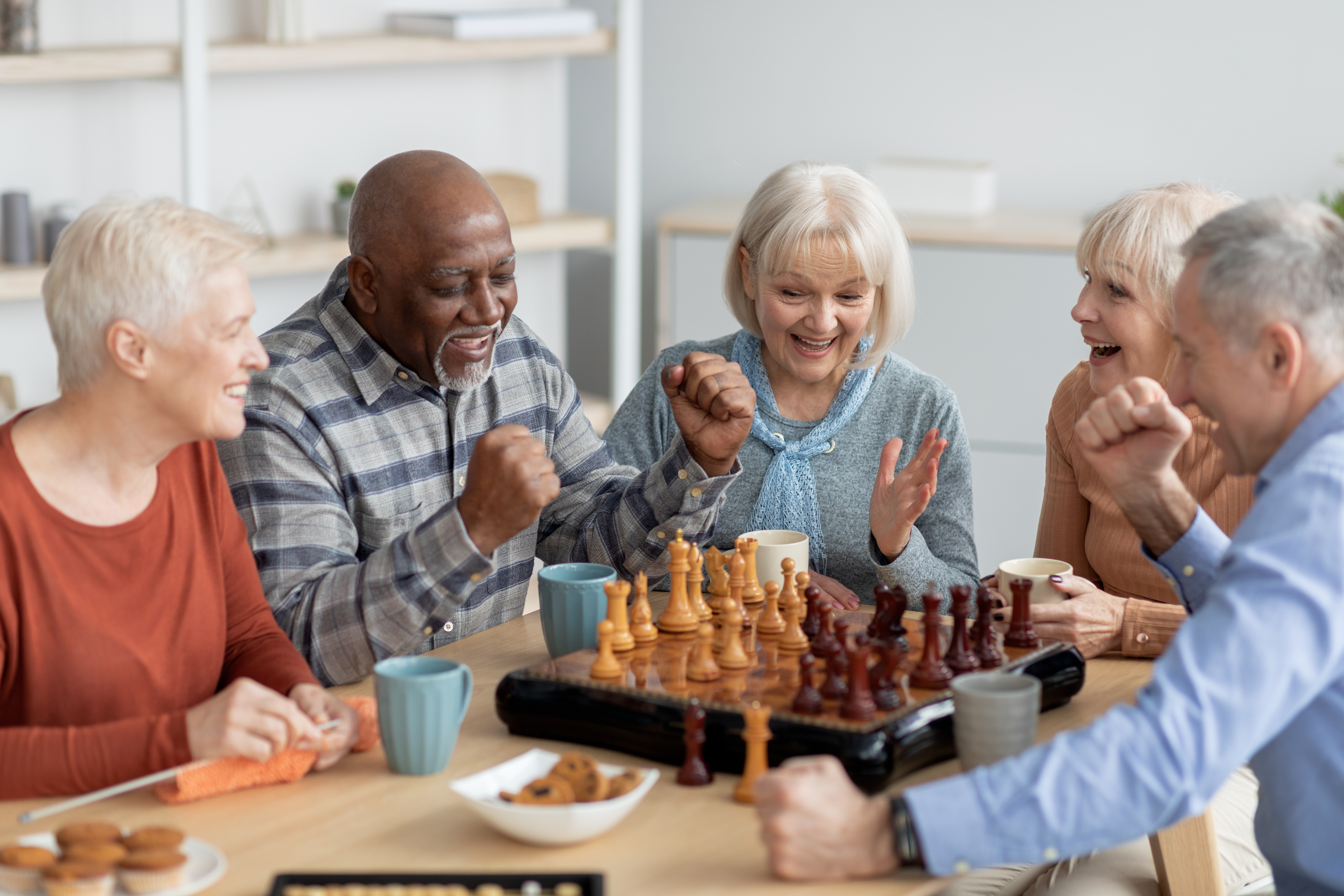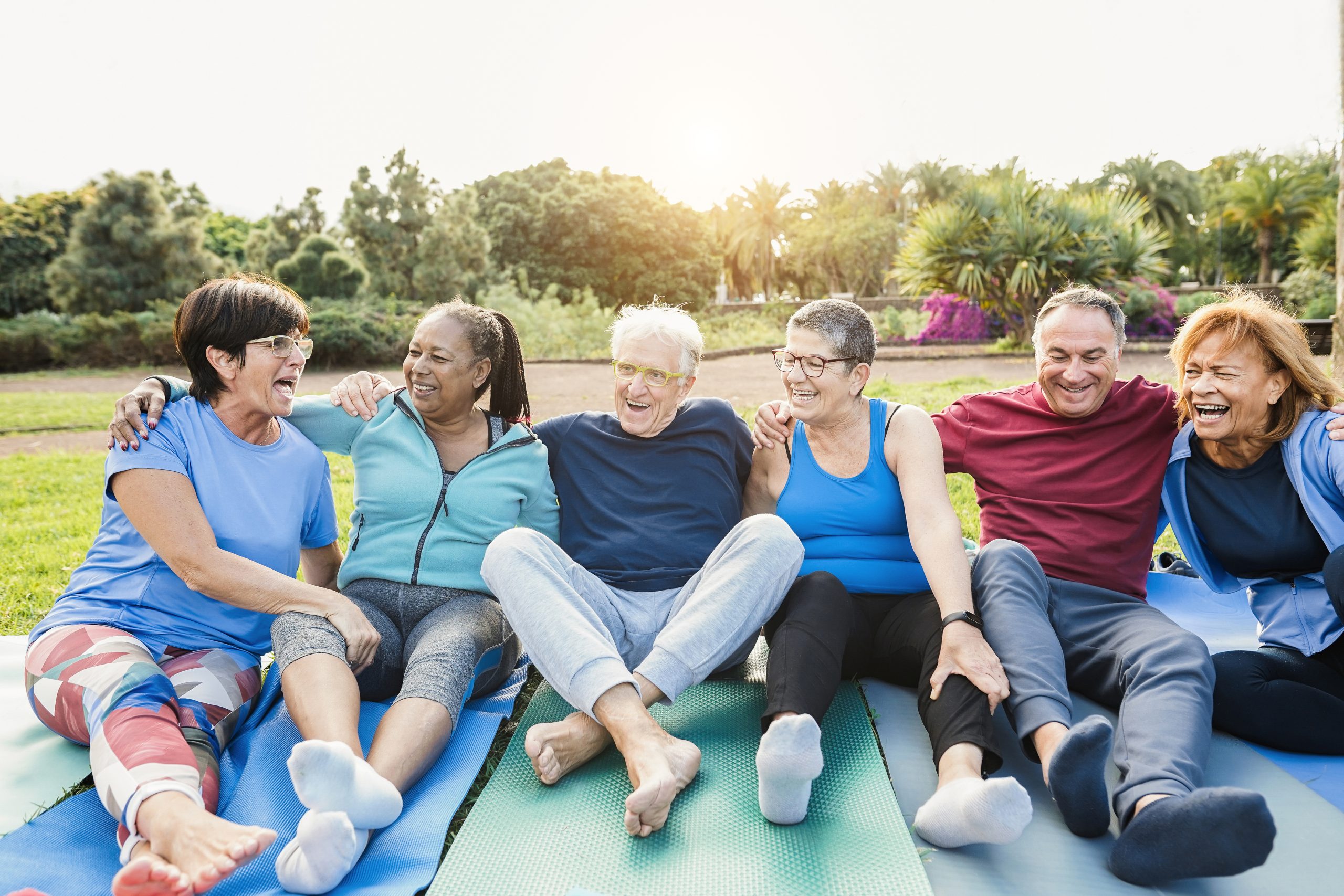August is National Wellness Month, a time dedicated to highlighting the importance of self-care, stress management, and the establishment of healthy routines. This month serves as a reminder to prioritize wellness in every aspect of life. For seniors, wellness is not just a choice but a necessity for maintaining a high quality of life. The aging process presents unique challenges, making it essential to focus on both physical and mental health. At Bay Harbor, we are deeply committed to promoting health and well-being for seniors by providing a supportive environment that encourages both physical and mental wellness. Through various programs and resources, we aim to help our community thrive, embracing the golden years with vigor and enthusiasm.
Importance of Wellness

Physical Health
Maintaining physical health is essential for seniors, as it leads to improved mobility, a reduced risk of chronic diseases, and an overall enhanced quality of life. As we age, the body’s needs change, requiring more attention to maintaining muscle mass, bone density, and flexibility. Regular physical activity helps sustain muscle strength, flexibility, and balance, which are crucial for independence and daily functioning. It also aids in preventing or managing chronic conditions such as heart disease, diabetes, and osteoporosis. Coupled with balanced nutrition, physical health becomes the cornerstone of a fulfilling and active lifestyle, allowing seniors to continue participating in the activities they love.
The benefits of physical health extend beyond the physical realm. An active body contributes to a sharper mind, improved mood, and better sleep quality. Seniors who maintain an active lifestyle often experience greater levels of energy and a more positive outlook on life. This holistic approach to health supports the body and mind, reinforcing the connection between physical activity and overall wellness.
Mental Health
Mental health plays a pivotal role in overall well-being, affecting cognitive function, emotional stability, and social engagement. It is an integral component of health that is often overlooked, yet it significantly contributes to a person’s quality of life. Mental health practices, such as mindfulness, social interaction, and mental stimulation, are key to sustaining mental well-being and preventing conditions like depression and anxiety. For seniors, maintaining mental health can also help combat feelings of isolation and loneliness, which are common as life circumstances change.
Mental health impacts every aspect of life, influencing how we think, feel, and act. It determines how we handle stress, relate to others, and make choices. For seniors, maintaining mental health is crucial to preserving cognitive abilities and emotional resilience. Engaging in activities that stimulate the brain and foster social connections can enhance mental clarity, boost confidence, and improve overall happiness. By prioritizing mental health, seniors can continue to lead fulfilling lives, enriched by meaningful relationships and a sense of purpose.
Tips for Maintaining Physical Health

Regular Exercise
Incorporating various forms of exercise is crucial for seniors to maintain their physical health. Strength training helps build and maintain muscle mass, flexibility exercises improve range of motion, and cardiovascular activities enhance heart health and circulation. Here are some practical tips for staying active:
- Set Daily Movement Goals: Aim for at least 30 minutes of moderate activity most days of the week. This can include walking, swimming, cycling, or any activity that gets the heart pumping.
- Find Enjoyable Activities: Choose activities that you enjoy, such as dancing, gardening, or tai chi, to make exercise a regular part of your routine. Enjoyment is key to maintaining consistency.
- Incorporate Variety: Mix up your exercise routine to include different types of activities. This not only keeps things interesting but also works different muscle groups and enhances overall fitness.
Regular exercise not only supports physical health but also provides a mental boost, reducing symptoms of anxiety and depression. It promotes better sleep and increases energy levels, helping seniors to feel more alert and engaged throughout the day.
Balanced Nutrition
A balanced diet is vital for supporting overall health. Seniors should focus on consuming a variety of fruits, vegetables, whole grains, and lean proteins to ensure they receive essential nutrients needed for bodily functions. Proper nutrition supports the immune system, aids in digestion, and promotes healthy weight management. Here are some tips for healthy eating:
- Plan Meals: Prepare meals in advance to avoid unhealthy choices. This can help ensure that meals are balanced and nutritious.
- Stay Hydrated: Drink plenty of water throughout the day to stay hydrated, as dehydration can lead to confusion and other health issues.
- Moderate Sugar and Salt Intake: Be mindful of added sugars and salt in your diet, as excessive intake can lead to health problems such as hypertension and diabetes.
Nutrition plays a significant role in managing chronic conditions and improving overall energy levels. By focusing on a diet rich in essential nutrients, seniors can enhance their health and maintain vitality.
Tips for Maintaining Mental Health

Social Interaction
Social engagement is critical for mental health, particularly for seniors who may face isolation due to retirement or the loss of loved ones. Maintaining relationships and participating in group activities can prevent feelings of loneliness and isolation. Here are some suggestions for staying connected:
- Join Clubs: Participate in clubs or groups that match your interests, whether it’s a book club, gardening group, or knitting circle. These gatherings provide opportunities to meet new people and build friendships.
- Attend Community Gatherings: Take part in local events and activities, such as community fairs, cultural events, or volunteer opportunities.
- Use Technology: Utilize technology to communicate with family and friends, such as video calls, social media, or messaging apps, to maintain connections even from a distance.
Social interaction enriches life, providing emotional support, companionship, and opportunities for personal growth. Engaging with others can also stimulate the mind and enhance emotional well-being.
Mental Stimulation
Keeping the mind active is essential for cognitive health, helping to preserve memory and attention. Engaging in activities that challenge the brain can enhance mental acuity and delay cognitive decline. Here are some ways to incorporate mental exercises into your routine:
- Puzzles and Games: Engage in puzzles, board games, or card games that stimulate the mind and encourage strategic thinking.
- Reading and Educational Classes: Read regularly or attend classes to learn something new, whether it’s a new language, skill, or hobby.
- Creative Activities: Explore creative outlets such as painting, writing, or crafting to stimulate creativity and problem-solving skills.
Regular mental stimulation can lead to improved memory, better problem-solving skills, and a more agile mind, allowing seniors to continue learning and growing throughout their lives.
Mindfulness Practices
Mindfulness and relaxation techniques can significantly reduce stress and improve mental clarity. Practicing mindfulness helps individuals stay present and focused, reducing anxiety and promoting a sense of calm. Incorporating mindfulness into daily routines can lead to a calmer, more focused mind. Here are some practical tips for practicing mindfulness:
- Deep Breathing Exercises: Practice deep breathing exercises to promote relaxation and reduce stress. This can be done anywhere and anytime to regain focus and calm.
- Meditation: Set aside time each day for meditation, allowing the mind to rest and recharge. Even a few minutes a day can have a positive impact on mental well-being.
- Journaling: Write down thoughts and feelings to help process emotions and gain insights. Journaling can be a therapeutic way to reflect and understand one’s mental state.
Mindfulness practices foster self-awareness and emotional regulation, providing tools to manage stress and enhance overall mental health.
Physical and mental wellness are integral to the overall well-being of seniors. By prioritizing health and engaging in activities that promote wellness, seniors can enjoy a more fulfilling and vibrant life. Bay Harbor offers a variety of wellness initiatives and resources designed to support seniors in their journey toward optimal health. Our programs are tailored to meet the unique needs of our community, offering support and guidance every step of the way. We invite you to learn more about our programs by scheduling a tour or contacting us for more information. Take the first step toward a healthier, happier life with Bay Harbor. Embrace National Wellness Month by committing to wellness practices that enhance your quality of life and bring joy and vitality to your daily experiences.




